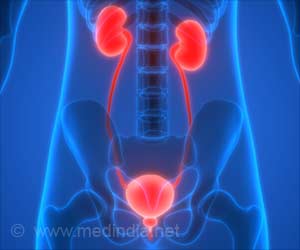A strong association between functional brain impairment and post-stroke depression has been identified in a recent study.

Instead of looking for dysfunction in a specific area of the brain following a stroke, Dr. Sibon's study was designed to assess a group of brain structures organized in a functional network called the default-mode network (DMN). Modifications of connectivity in the DMN, which is associated with internally generated thought processes, has been observed in depressive patients.
"The default-mode network is activated when the brain is at rest," Dr. Sibon said. "When the brain is not actively involved in a task, this area of the brain is engaged in internal thoughts involving self-related memory retrieval and processing."
In the study, 24 patients between the ages of 18 and 80 underwent resting-state functional magnetic resonance imaging (fMRI) 10 days after having mild to moderate ischemic stroke. An fMRI imaging study measures metabolic changes in specific areas of the brain. Although many fMRI exams are designed to measure brain changes while a patient performs a specific task, during a resting-state fMRI exam, patients lie motionless.
The patients, which included 19 men and five women, were also clinically evaluated 10 days and three months post-stroke to determine the presence and severity of depression and anxiety symptoms. At three months post-stroke, patients were evaluated for depression using the DSM-IV diagnostic classification system.
Using the DSM-IV criteria, 10 patients had minor to moderate depression, and 14 patients had no depression. Results of the fMRI exams revealed an association between modifications of connectivity in the DMN 10 days after stroke and the severity of depression three months post-stroke.
Advertisement
According to Dr. Sibon, the widespread chemical changes that result from a stroke may lead to the modification of connectivity in brain networks such as the DMN. He said results of his study may contribute to the clinical management of stroke patients by providing an opportunity to investigate the effects of a variety of treatments on patients whose fMRI results immediately post-stroke indicate impaired connectivity in the DMN.
Advertisement















